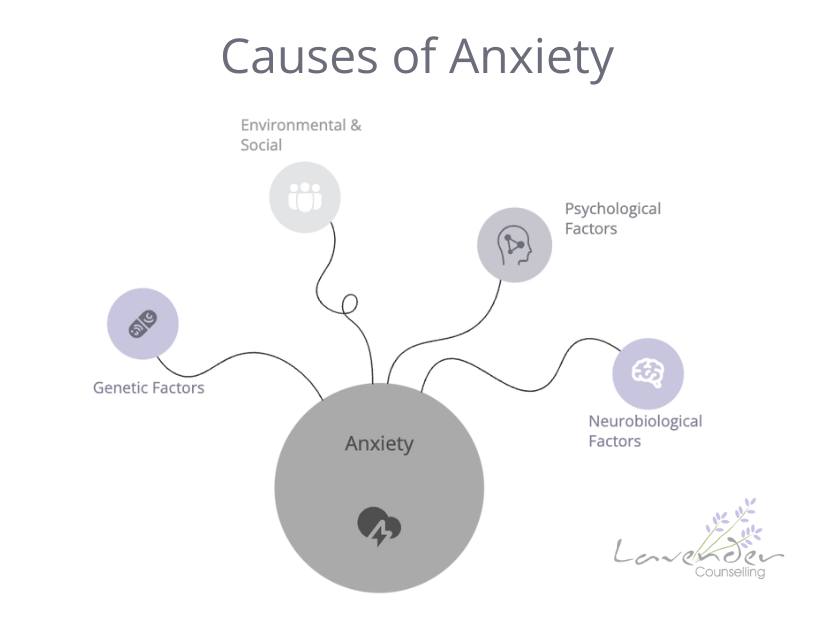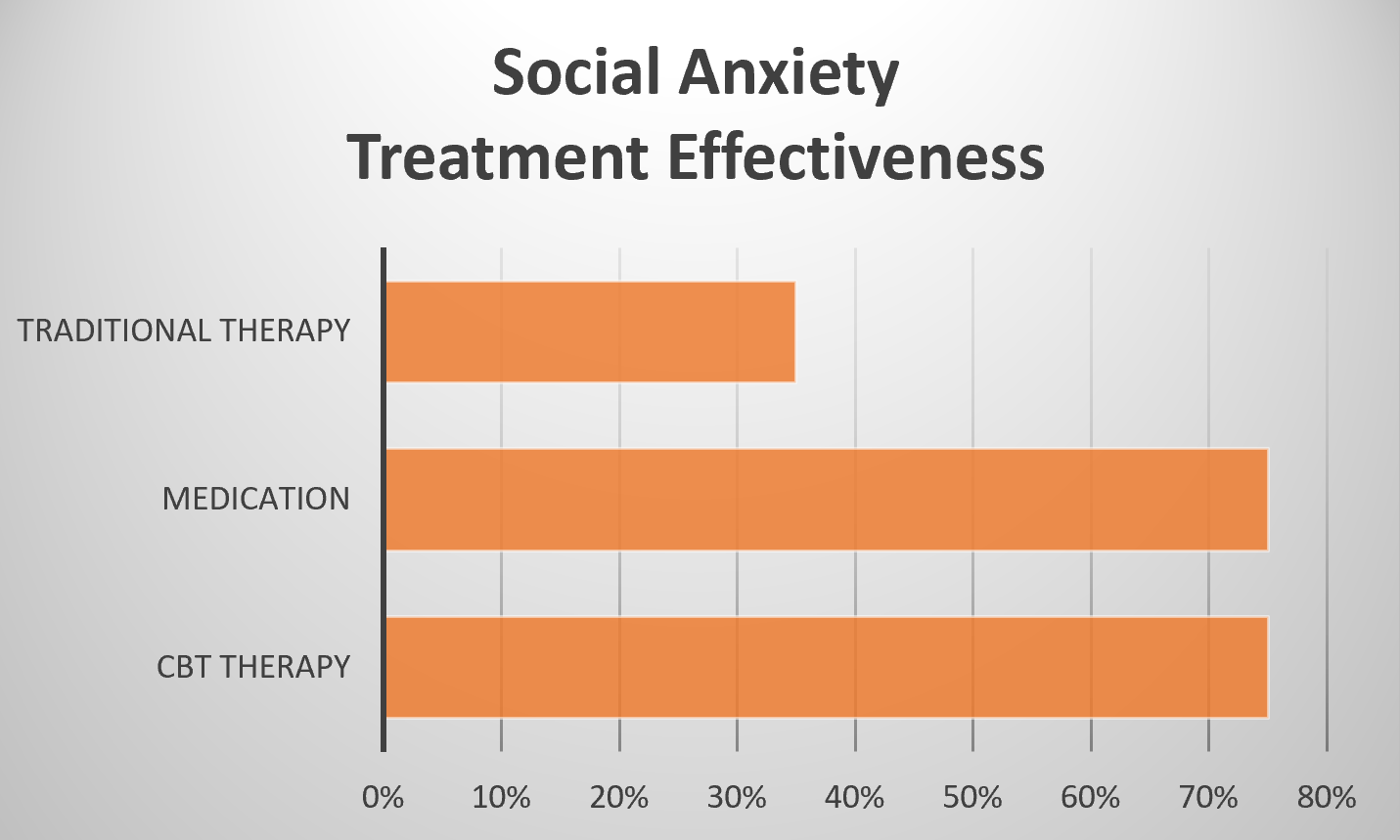Reclaim your emotional health through therapeutic therapy for anxiety
Wiki Article
Discovering Different Approaches in Coaching for Stress And Anxiety Disorder for Lasting Modification
When tackling stress and anxiety problems, it's important to discover a variety of counseling strategies. Each technique offers distinct insights and devices to assist you manage your symptoms successfully. You may find that integrating strategies can yield the finest outcomes. Nevertheless, understanding the nuances of these techniques is essential to fostering enduring change. Suppose the appropriate combination could release a brand-new level of emotional health for you?Understanding Anxiety Problems: A Quick Review
Anxiousness problems, which influence countless individuals worldwide, can substantially affect day-to-day life. You may experience overwhelming sensations of concern or worry that seem irrepressible. These sensations can lead to physical symptoms like a racing heart, sweating, or perhaps lightheadedness. Typical kinds of stress and anxiety problems include generalized anxiousness problem, panic problem, and social stress and anxiety disorder. Each has one-of-a-kind indications, yet they all share a tendency to interrupt your regular and relationships.Understanding the origin of your anxiety is important. It may come from genes, brain chemistry, or life experiences. Recognizing your triggers can aid you handle your actions much better. It is essential to bear in mind that you're not the only one in this struggle. Numerous people face similar challenges, and looking for aid is a strong step toward feeling better. By finding out about stress and anxiety problems, you're currently on the path to understanding and managing your condition better.Cognitive-Behavioral Treatment: Testing Negative Thought Patterns
In Cognitive-Behavioral Treatment, you'll start by recognizing the adverse thought triggers that add to your stress and anxiety. You'll work on replacing them with more positive options when you identify these thoughts. Together, you'll build effective coping approaches to help handle your anxiousness in day-to-day situations.Determining Unfavorable Thought Triggers

Recognizing the particular triggers behind your negative ideas can be important in managing stress and anxiety when you experience minutes of distress. Begin by taking note of circumstances that provoke sensations of worry or worry. Is it a jampacked room, an upcoming deadline, or a conversation with particular individuals? Write down these circumstances in a journal. This will aid you recognize patterns in your reasoning. Notice physical experiences that accompany your unfavorable thoughts, like an auto racing heart or rigidity in your upper body. By determining these triggers, you acquire insight into what's sustaining your anxiety. Understanding these connections is the very first step in testing those ideas and ultimately gaining back control over your emotional responses.
Replacing Ideas With Positives
Challenging unfavorable thought patterns is a necessary step in changing your attitude and lowering anxiousness. You might often discover yourself trapped in cycles of self-doubt or devastating reasoning. Instead of allowing these thoughts determine your sensations, technique changing them with favorable affirmations or sensible options. For instance, when you assume, "I can't manage this," change it to, "I can manage obstacles one step each time." This simple modification can considerably influence your mood. Frequently identifying and responding to these unfavorable ideas assists develop a healthier interior discussion. Bear in mind, it takes time and initiative, but continually practicing this technique can bring about lasting change, encouraging you to encounter anxiety with restored self-confidence and durability.Building Coping Methods Together
Replacing adverse thoughts is only the beginning of managing anxiety properly. To create enduring modification, you need to develop coping techniques that encourage you. Cognitive-Behavioral Treatment (CBT) aids you recognize and test those unhelpful thought patterns. Together, you and your counselor can check out exactly how these ideas effect your sensations and behaviors.Start by developing sensible strategies, like journaling or mindfulness exercises, that permit you to face anxiousness head-on. When you encounter your anxieties slowly, you'll find out to react in different ways.
Mindfulness and Acceptance-Based Approaches: Cultivating Present-Moment Recognition
As you navigate the intricacies of anxiety, integrating mindfulness and acceptance-based strategies can significantly enhance your capability to cultivate present-moment recognition. By focusing on the below and currently, you'll locate that you can observe your thoughts and feelings without judgment (Counseling services for anxiety). This method aids you acknowledge your anxiousness without really feeling bewildered by it.Engaging in mindfulness exercises, such as deep breathing, body scans, or assisted reflections, permits you to ground on your own in your current experience. Acceptance-based techniques encourage you to embrace your emotions instead of combat against them. When you accept your sensations, they lose their power over you.Incorporating these methods right into your everyday routine can transform exactly how you respond to anxiousness. You'll establish resilience and find out to browse difficult circumstances with better convenience. Inevitably, growing present-moment understanding lays the structure for enduring change, equipping you to lead a much more satisfying lifeExposure Treatment: Facing Concerns Slowly
Exposure therapy aids you challenge your concerns in a progressive means, making it less frustrating. You'll find out methods to face anxiety-provoking situations step by step, while also constructing coping strategies to manage your reactions. This technique equips you to take control and minimize anxiousness over time.Progressive Direct Exposure Strategies

When facing anxiousness, slowly challenging your anxieties can be a powerful means to regain control. This method, recognized as steady direct exposure, includes gradually subjecting yourself to the situations or objects that trigger your anxiousness. Start with less daunting situations and progressively work your way as much as even more tough ones. If you're scared of public speaking, you might start by talking in front of a mirror, then advance to sharing thoughts with a good friend, and at some point resolve a small group. Each step aids desensitize you to the fear, building your self-confidence with time. Bear in mind, it's important to pace on your own and commemorate small victories as you relocate via this procedure, enhancing your capacity to take care of anxiousness properly.
Structure Coping Techniques
Building effective coping approaches is essential for managing anxiousness, specifically as you confront your anxieties gradually - Counseling services for anxiety. One powerful technique is direct exposure treatment, where you start by encountering your anxieties in a regulated fashion. Start with much less frightening circumstances and slowly function your method approximately more difficult circumstances. This gradual exposure assists desensitize you to stress and anxiety sets off, making them much less overwhelming.Incorporate leisure strategies, such as deep breathing or mindfulness, to soothe your mind throughout direct exposure. Track your progress, celebrating small success in the process to improve your self-confidence. Bear in mind, it's all right to take your time; the goal isn't perfection yet steady enhancement. By constructing these methods, you'll equip yourself to navigate stress and anxiety and embrace life extra totallyPsychodynamic Therapy: Uncovering Source of Stress And Anxiety
Psychodynamic treatment explores the unconscious mind, disclosing the origin of your anxiety. By analyzing your thoughts, sensations, and previous experiences, this technique aids you uncover underlying problems and unresolved concerns that may contribute to your present anxiousness. You'll collaborate with a therapist to check out childhood years experiences, partnerships, therapy for anxiety and psychological patterns that form your reactions today.As you gain understanding right into these much deeper layers of your subconscious, you'll start to recognize how past events influence your present habits. This understanding can result in catharsis, enabling you to refine emotions you could have suppressed.Through the restorative partnership, you can also recognize defense systems that might have created in time, using a clearer course to alter. Eventually, psychodynamic treatment equips you with the devices to resolve your stress and anxiety at its core, promoting long lasting makeover in your psychological health.Holistic and integrative Approaches: Integrating Strategies for Greater Effectiveness
Integrating numerous restorative methods can improve your journey toward managing anxiety better. By combining elements from cognitive-behavioral therapy, mindfulness techniques, and holistic approaches, you can produce a customized strategy that addresses your distinct needs. You may utilize cognitive-behavioral strategies to challenge unfavorable idea patterns while integrating mindfulness exercises to ground on your own in the present moment.Additionally, discovering all natural techniques such as yoga or reflection can advertise relaxation and reduce anxiousness signs and symptoms. This blend permits you to create better self-awareness and resilience.Experimenting with these diverse techniques can aid you uncover what reverberates most with you. Keep in mind, it has to do with finding a synergy that functions, as opposed to adhering to a solitary method. This integrative technique not only provides instant alleviation but also fosters long-term skills for taking care of anxiety, equipping you to redeem control over your life.The Duty of Assistance Solutions: Building Resilience Via Link
While it may appear that handling anxiety is a solitary journey, having a solid support system can play a crucial function in your resilience. Bordering on your own with understanding good friends, family, or assistance teams develops a safe area where you can honestly share your sensations and experiences. You advise on your own that you're not alone in this struggle.These relationships offer motivation and can provide functional coping strategies that have actually worked for others when you attach with others. It's likewise an opportunity to gain point of view; good friends can help you see situations in different ways, lowering sensations of isolation.Moreover, psychological support promotes a feeling of belonging, which can considerably alleviate anxiousness signs. By leaning on your assistance system, you can develop resilience and take on obstacles better. Bear in mind, reaching out for aid is a sign of strength, and it can make all the distinction in your trip toward managing anxiousness.Regularly Asked Concerns
What Are the Typical Symptoms of Anxiousness Conditions?
You might experience uneasyness, exhaustion, trouble concentrating, irritability, muscular tissue tension, and sleep disruptions. Physical symptoms can include quick heartbeat, sweating, and shivering. Acknowledging these indicators early can help you look for appropriate assistance and treatment.The Length Of Time Does Therapy Generally Last for Anxiousness Problems?
Treatment for anxiousness problems usually lasts anywhere from a few weeks to numerous months. It really relies on your individual demands, progress, and the methods your therapist utilizes to assist you manage your anxiety successfully.Can Medication Be Used Alongside Therapy for Anxiety?
Yes, medication can definitely be made use of along with therapy for anxiety. Incorporating both methods usually improves therapy effectiveness, aiding you handle signs and symptoms while exploring underlying problems via counseling (Counseling services for anxiety). Always consult your medical care supplier for personalized recommendationsExist Self-Help Strategies for Handling Stress And Anxiety?
Yes, there are numerous self-help methods for taking care of anxiety. You can practice mindfulness, take part in normal workout, maintain a balanced diet plan, establish a regular, and utilize deep breathing methods to help in reducing stress and anxiety signs properly.Just how Do I Know if I Need Professional Help for Stress And Anxiety?

Report this wiki page